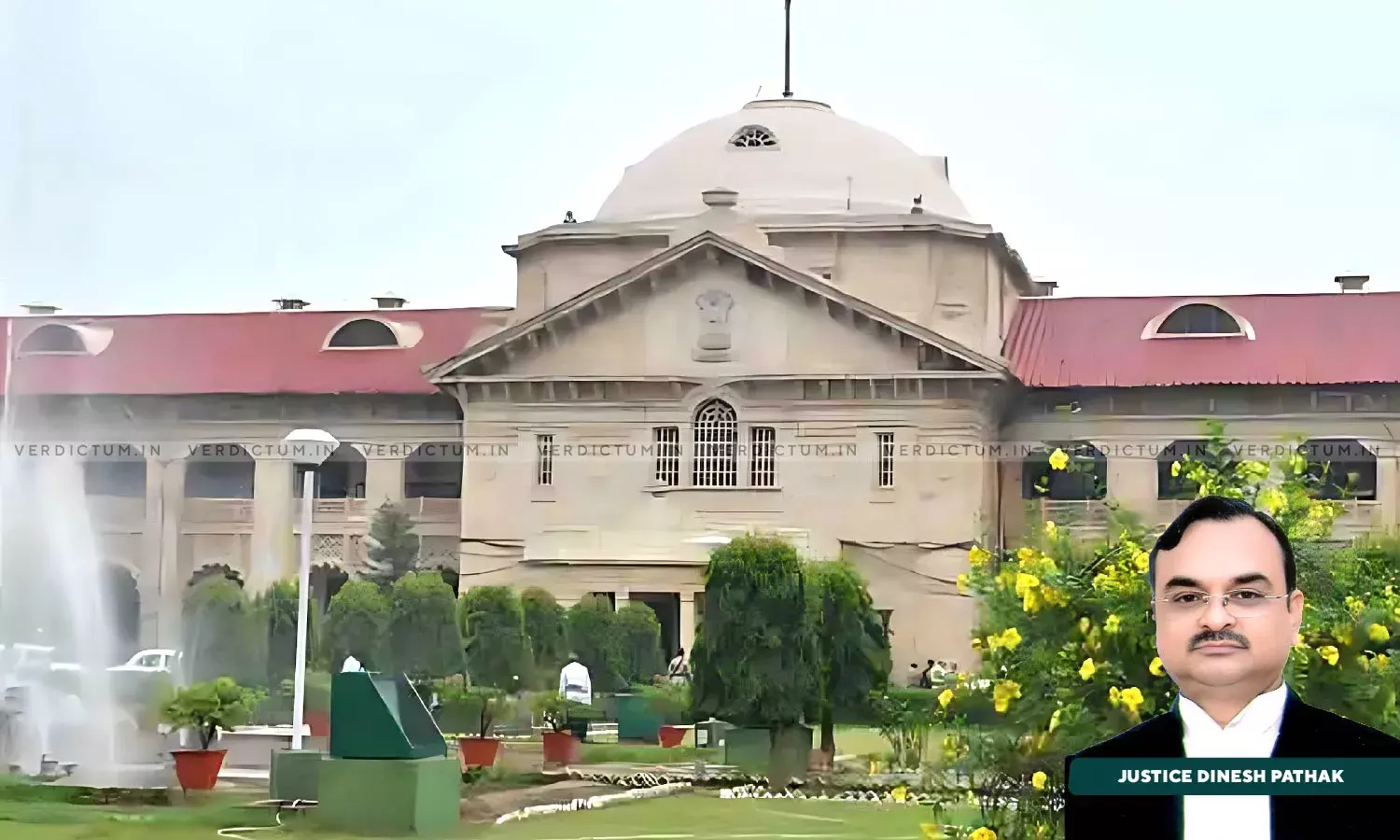Can Parallel Proceedings U/S 145 CrPC Continue When Possession Of Land Is Under Civil Court's Scrutiny? Allahabad HC Answers

Justice Dinesh Pathak, Allahabad High Court
The Allahabad High Court held that parallel proceedings under Section 145 of the Criminal Procedure Code, 1973 (CrPC) can be dropped when the civil court has passed some effective order indicating as to which of the parties was entitled to possession.
In this case, the High Court allowed an petition challenging the order and proceedings passed by the Trial Court under Section 145 of the CrPC.
The Court noted that the Trial Court, when deciding the interim injunction application explicitly recognized the Applicant's possession. However, the Trial Court declined to issue an interim order citing the reason that the possession was deemed not legal.
The Bench of Justice Dinesh Pathak observed, “It is further observed that when possession is being examined by the civil court and the parties are in a position to approach the civil court for adequate protection of the property during pendency of the dispute, the parallel proceeding i.e. under Section 145 Cr.P.C. should not continue”.
Advocate Raj Kumar Khanna appeared for the Applicant and Senior Advocate Satish Trivedi appeared for the Respondent.
An application was filed before the High Court challenging the order of the Trial Court. The case pertained to a dispute over the property named Hari Nikunj Ashram, consisting of two separate buildings in Vrindavan, Mathura. The Police noted conflicting claims between the parties, recommended summoning both parties and attaching the Ashram pending resolution to maintain law and order.
The Court observed that the Applicant, asserting ownership through a registered sale deed and a gift deed, faced opposition from the other party claiming rights through a separate society. Despite a Court's interim order, the police report led to a preliminary order under Section 145 (1) CrPC. Emphasizing that, during a property-related civil suit, magistrates should refrain from issuing findings or interim directions under Section 145 CrPC, the Court noted the need for such matters to be left for the competent civil court to decide. The Bench highlighted that parties involved in a civil suit over possession and title should seek remedies before the civil court.
The Court reiterated that concluded Section 145 CrPC proceedings shouldn't be set aside merely because an unsuccessful party approached the civil court. The Bench noted that dropping Section 145 CrPC proceedings is warranted if the civil court has clarified possession or appointed a receiver.
In the case, the Trial Court had acknowledged the applicant's possession but declined an interim order due to concerns about legality and peacefulness.
The Bench considered the preliminary order an abuse of the court's process and quashed it in the interest of justice. The Court stressed that the civil suit's outcome would determine parties' rights, titles, and possessions, and interim protection could be sought through the appropriate civil court applications.
Accordingly, the Court allowed the Application and set aside the impugned order.
Cause Title: Aman Deep Singh Shishya v State of U.P. and Another (2023:AHC:241628)

